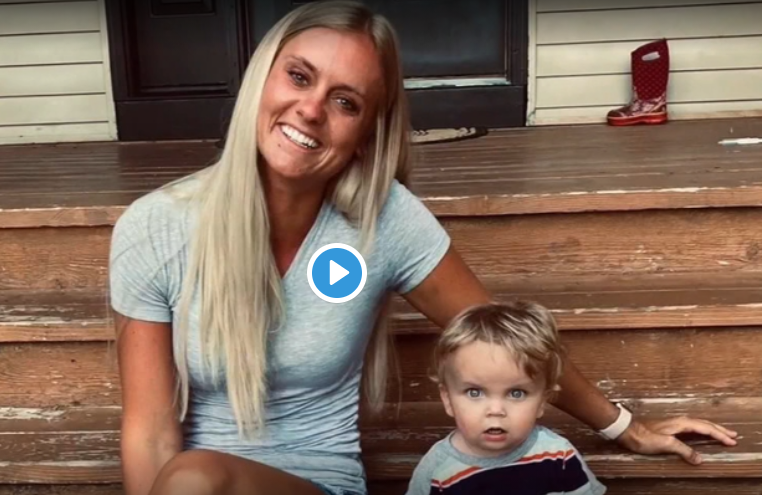COVID-19 nurse donates her kidney to 18-month-old boy
Bodie and Taylor’s story is one of giving, receiving and the kindness of strangers. Hear how the nurse and 18-month-old found each other

[Oct. 7, 2020: ABC 13]
MINNEAPOLIS, Minnesota -- A nurse's selfless decision to donate her kidney to an 18-month-old boy could have saved his life, and their story is capturing hearts across the country.
Bodie Hall, the 18-month-old from St. Michael, Minnesota, was born with a condition called "congenital nephrotic syndrome," a rare kidney disorder.
His parents knew early on he'd need a kidney transplant, but neither one of them could donate.
"It's like, how do you ask somebody to donate a kidney?" Bodie's mom Gloria Hall told KSTP.
Bodie's dad, Brandon Hall, wasn't a blood-type match, and Gloria had already donated a kidney to Bodie's older sister who had the same condition.
"This was outside of our control," Brandon said.
Eventually, Bodie's kidneys would have failed, his family says.
He was placed on a kidney transplant list, but his doctors also recommended taking to social media and using word of mouth to try and find a donor.
Then came nurse Taylor Pikkarainen, who is a friend of a friend.
"It's definitely part of my calling, helping people," she said. "Even just reading his story and seeing his picture on the Facebook page, he was the cutest thing ever."
Pikkarainen, a traveling nurse from Minnesota, was working with COVID-19 patients in New Jersey when she heard about Bodie.
"I filled out the paperwork right then and there," she recalled.
Doctors say it is hard to find a well-matched donor, but physicians at M Health Fairview determined Pikkarainen would be the best match for Bodie out of several possible kidney donors.
His case was one of the first to use new, enhanced, matching technology called "epitope mapping."
Dr. Raja Kandaswamy says this type of matching allows doctors to evaluate organs on a more minute, detailed level to determine the strength of a match between a donor and a recipient.
"We get to the molecular level and look for the molecular signatures that pose risk for rejection, and if we can match at that level, that gives you a higher degree of protection from rejection." Dr. Kandaswamy said.
The transplant surgery took place July 9, which just so happened to be Pikkarainen's birthday.
"It was a different birthday, but a good one," she said.
"There's no way to express how grateful you are for saving your kid, really," Bodie's mom said.
"We just told her 'Thank you,'" his father said. "We just couldn't believe that she was willing to do something like that for us."
"We are connected in some way, but you can't see it from the outside," Pikkarainen said.
Bodie is taking anti-rejection medication, and probably will for the rest of his life. His doctors say that the in-depth matching they did on the front end will hopefully improve his odds.
This Brighter Side of News post courtesy of ABC 30.
Like these kind of stories? Get The Brighter Side of News' newsletter.
Joseph Shavit
Head Science News Writer | Communicating Innovation & Discovery
Based in Los Angeles, Joseph Shavit is an accomplished science journalist, head science news writer and co-founder at The Brighter Side of News, where he translates cutting-edge discoveries into compelling stories for a broad audience. With a strong background spanning science, business, product management, media leadership, and entrepreneurship, Joseph brings a unique perspective to science communication. His expertise allows him to uncover the intersection of technological advancements and market potential, shedding light on how groundbreaking research evolves into transformative products and industries.
